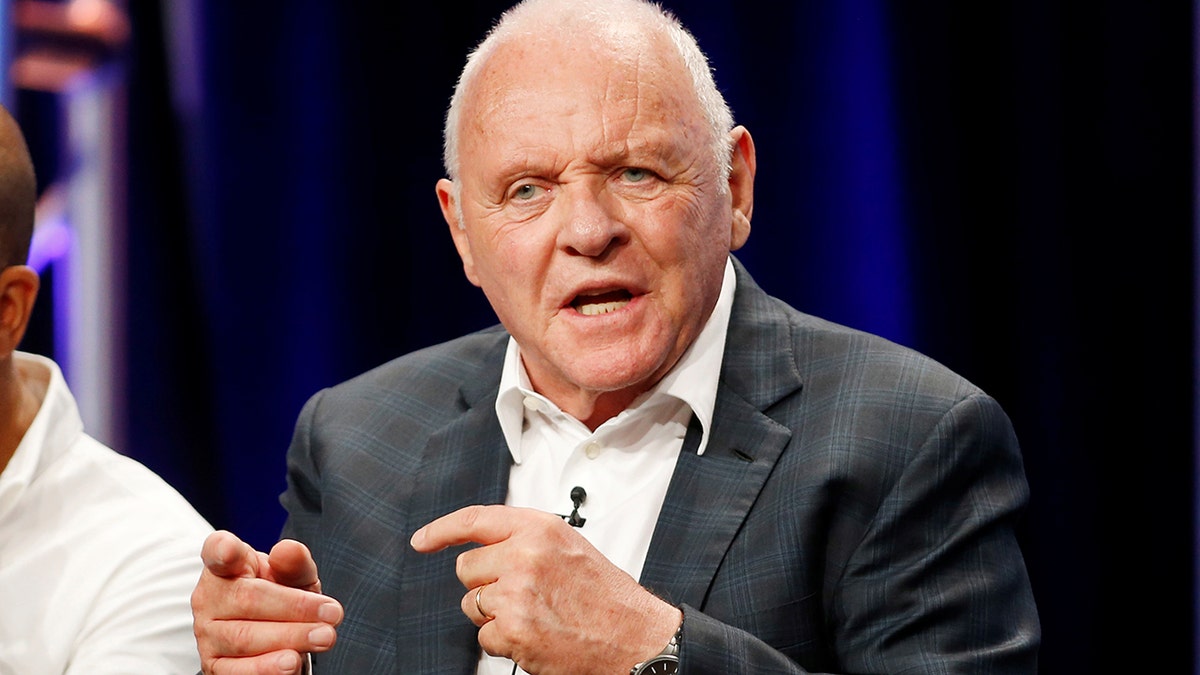
Anthony Hopkins shares daughter Abigail with his first wife Petronella Barker. (Reuters)
More than 40 years ago, when actor Anthony Hopkins was appearing on Broadway in the hit drama “Equus,” he would play a practical joke on his audience each night.
The moment the curtain fell on Act I, he would quickly repair to a bar around the corner from the theater. Astonished theatergoers would find the star of the show they were attending tossing back drinks, even before they could get their own orders in.
The practice also made Hopkins, in his own words, “disgusted, busted and not to be trusted.”
Shortly thereafter, Hopkins says, he attended his first meeting of Alcoholics Anonymous. He showed up at the meeting because he was sick and tired of hangovers and of being called “very difficult to work with,” as he recently told a Los Angeles audience.
At that 1975 meeting, a woman said seven words that transformed Hopkins’ life, put him on the road to more than 40 years of continuous sobriety, and helped make him one of the most successful motion picture stars in the history of the industry.
The seven words: “Why don’t you just trust in God?”
Hopkins took that advice, and the results speak for themselves. He went from being hung over and difficult to work with to become one of the most beloved movie stars of all time. And what worked for Hopkins can work for anyone.
What works for people in 12-step recovery also can work for anyone. If your life isn’t working and you think you might need God’s help, all you have to do is ask for that help.
People wonder what Alcoholics Anonymous is all about, and why there is so much talk of God in the program. The short answer is that the founders of A.A. recognized that a reorganization of one’s spiritual principles was necessary to escape the grip of addiction.
They identified addiction as a spiritual issue as well as a physical and mental one, which meant that a spiritual solution was in order. And that’s why, 40 years after the program was founded, a woman asked Anthony Hopkins in an A.A. meeting: “Why don’t you just trust in God?”
There’s a story in an A.A. book called “Experience, Strength, and Hope” about a newcomer who approached A.A. co-founder Bill Wilson at a meeting in the late 1930s.
“I’ve made a jumble of my life,” the newcomer sadly said.
“What about asking God to unjumble it?” Wilson replied.
That’s what God does. He unjumbles our lives – but only if we let Him.
As another A.A. member, Chuck C., wrote in his book, “A New Pair of Glasses,” “God is a gentleman – he doesn’t go where he isn’t invited.”
The good news is that God wants nothing more than to help people who ask for help – and often, those who don’t as well. “The Big Book,” the basic text of A.A., addresses the question in a chapter directed to agnostics: “We found that God does not make too hard terms with those who seek Him.”
In other words, if you want to pray in a manner following the dictates of an established religion, go ahead. But God is equally amenable (pun intended) to a prayer as basic as “Please unjumble my life,” or even, more simply, “Help me.”
Early members of A.A. discovered that by inviting God into their lives they were able to overcome their addictions to alcohol. And then they found that by keeping God in their lives, they were able to meet all of life‘s challenges as never before – in Bill Wilson’s words, “to match calamity with serenity,“
This is just as true for non-alcoholics who sense a need for a spiritual solution to seemingly intractable problems in their lives. “God loves to hear from strangers,” as A.A. members laughingly put it.
If you need help, just ask.
A.A. is not an opponent of organized religion – far from it. In fact, many members who for decades had never darkened the doorstep of a church or synagogue find themselves returning to the religions in which they were raised. But that’s not an obligation – not for people in A.A., and not for anyone else.
Is it easy to trust God, an invisible, unprovable force? Well, that’s why they call it a “leap of faith” – not a “crawl of faith.”
It took courage for Anthony Hopkins to trust God after decades of uncontrolled drinking and other negative behaviors. But he made that leap of faith, and by trusting God, he has inspired others for more than 40 years to do likewise.
Those who know Hopkins personally through A.A. could tell you story after story about his kindness and selflessness – not the typical behavior associated with big-time movie stars. It’s hard to find the words “Hollywood A-lister“ and “role model“ in the same sentence, but those terms both apply in his case.
So if, like Hopkins back in 1975, you need a drink or two to get ready for your second act, you might follow his example and give God your trust.
After all, as we say in A.A., “if you were feeling distanced from your Higher Power, who moved?”








































